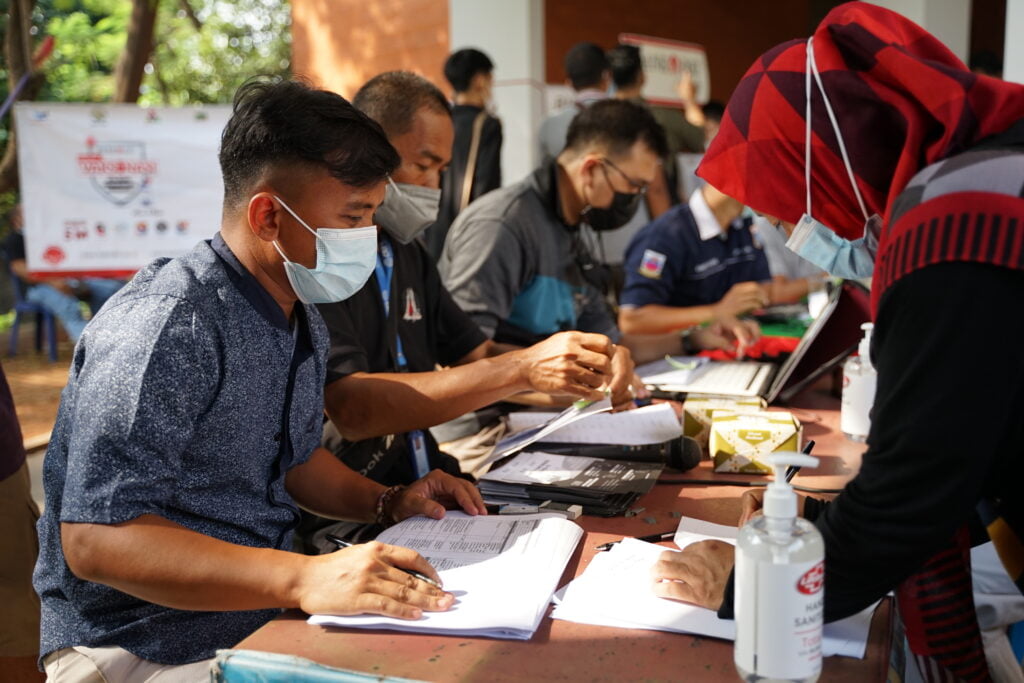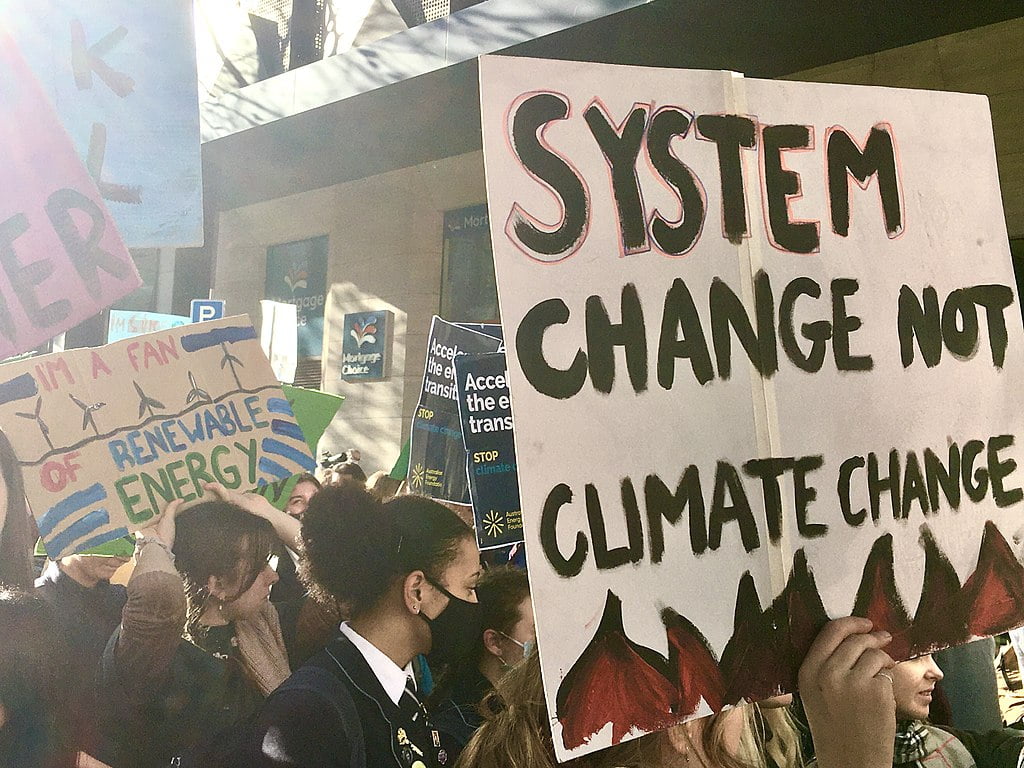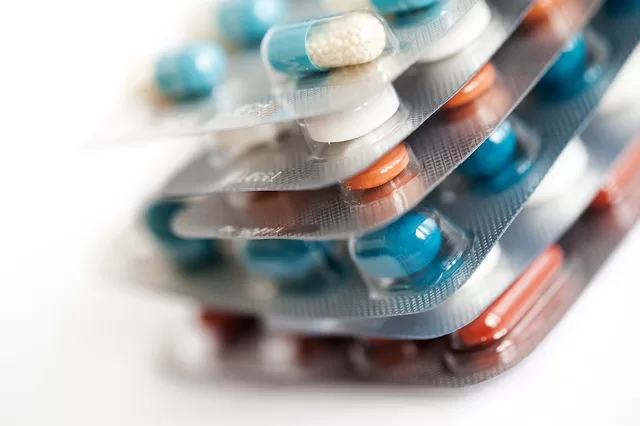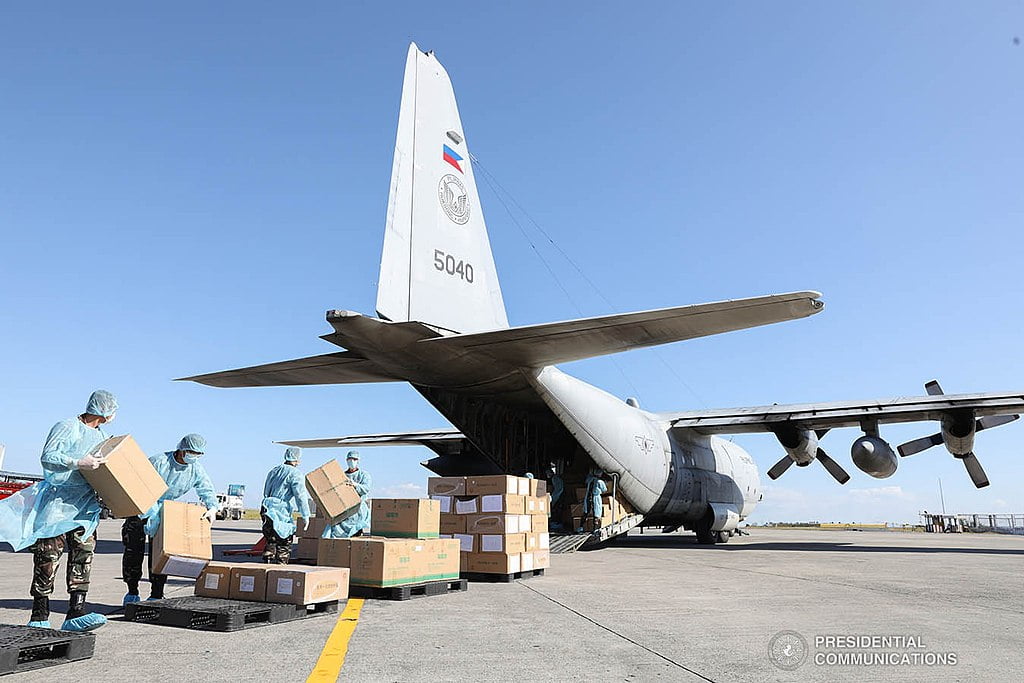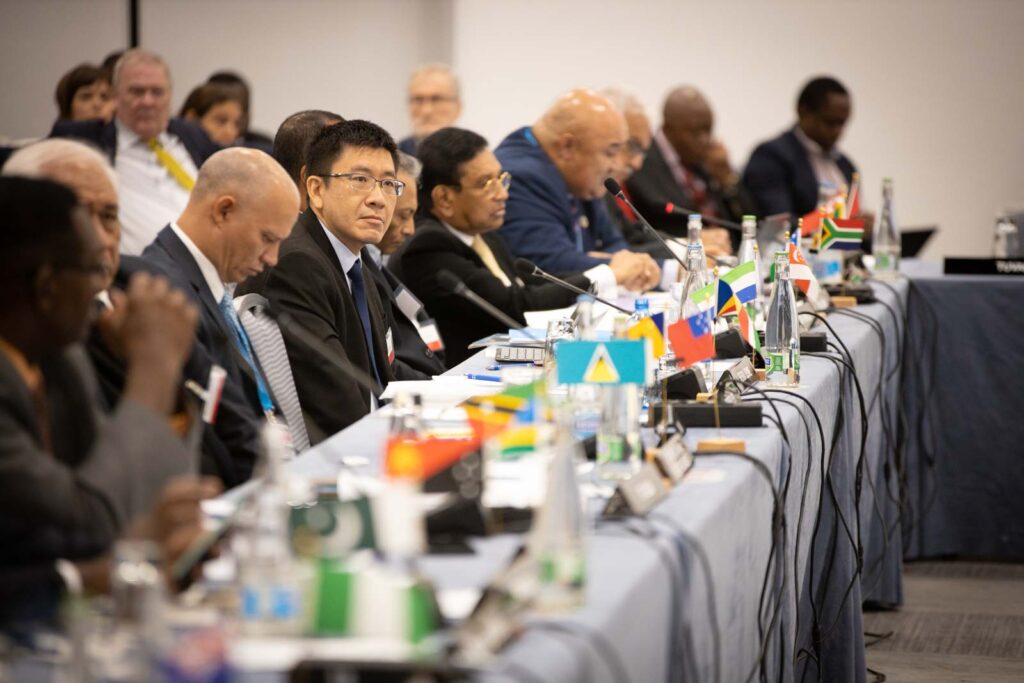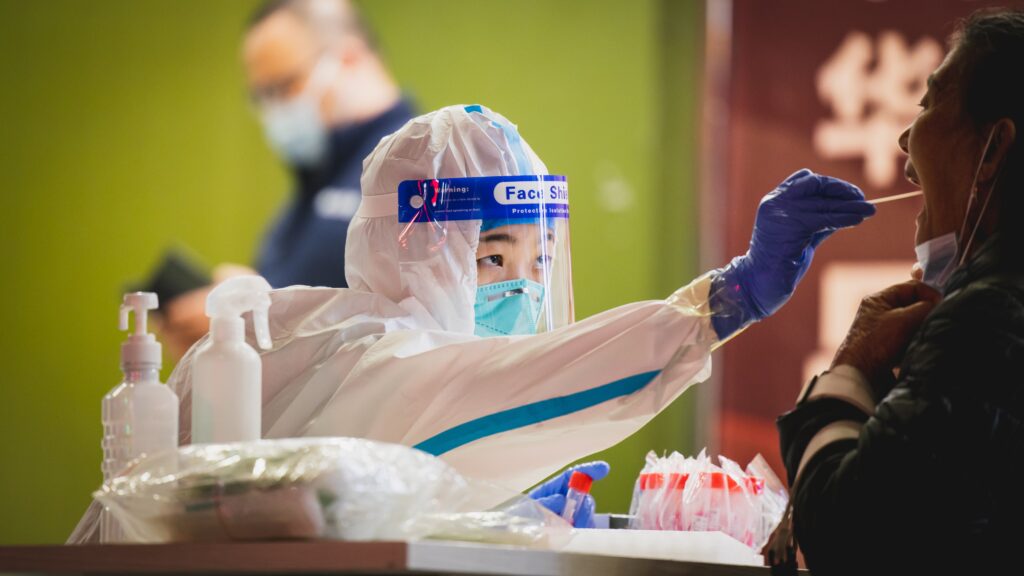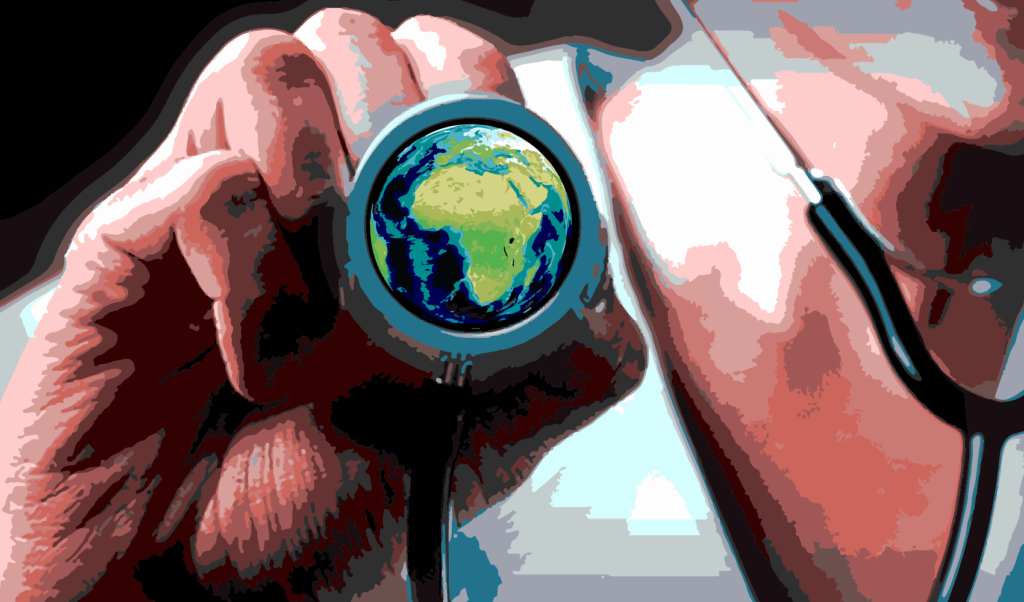The pandemic gave health diplomacy its stiffest test. While there were successes, geopolitical power games resulted in failures.
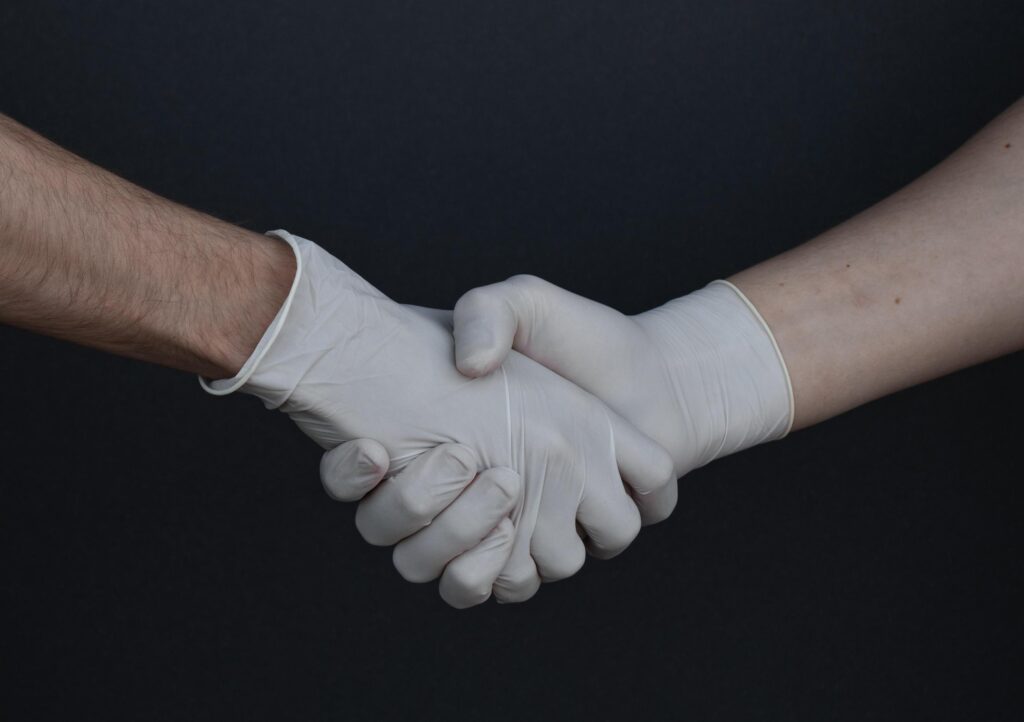 Global health became embroiled in geopolitical power shifts during the pandemic. : Branimir Balogović Unsplash
Global health became embroiled in geopolitical power shifts during the pandemic. : Branimir Balogović Unsplash
The pandemic gave health diplomacy its stiffest test. While there were successes, geopolitical power games resulted in failures.
Global health diplomacy is at a crossroads and the COVID-19 pandemic has made this abundantly clear.
Health diplomacy — where domestic and foreign policy decisions intersect with public health – has become a crowded field with major funders, new global health organisations and political clubs such as the G7 and G20 all vying for a seat at the table. This has led to more investment in global health and innovative partnerships, but it’s also created a fragmented and competitive environment due to a lack of cooperation.
These tensions were recognised when G20 health ministers met in Bali, Indonesia last month in a bid to improve global health co-operation and strengthen pandemic prevention, preparedness and response.
“Despite our differences, the G20 member states have come together to speak the same language — the language of humanity above all; the language of health that knows no border,” Indonesia’s health minister Budi Gunadi Sadikin said.
But the reality is the power of defining global health priorities still lies with the Global North — wealthy nations — and its donors. Equity and inclusiveness are not properly recognised. We need a new approach.
Cooperation between people and organisations involved in global health at all levels — but critically at a national level — lacks accountability to the global community and vulnerable populations.
When the COVID-19 pandemic struck, the long-standing call by the World Health Organization to put health high on the political agenda and to consider its impact on other key economic and development sectors was suddenly heeded.
The global health community expected that making health an integral part of foreign policy and the focus of diplomacy in such a time of serious public health threat would lead to a strong co-ordinated response.
But geopolitics got in the way.
From day one of the pandemic global health became embroiled in geopolitical power shifts. The divisions between the United States and China and between high-income and middle-to-low-income nations were thrown into sharp relief. It’s these two issues, and the impact of the Ukraine war, that will likely define the direction global health takes in the next decade.
Health diplomacy during the pandemic led both to rapid and innovative responses, but also to a complete breakdown in some areas of negotiation.
Diplomatic stand-offs surfaced as the US attacked the WHO over its response to the pandemic, using it as a proxy for the competition between the US and China. This weakened global health cooperation from the start and hampered the speed of some responses, not only by the WHO, but also by the G7 and the G20. It is not yet resolved.
The ACT-Accelerator partnership was launched by WHO in 2020 to fight the pandemic, with its vaccine pillar — COVAX — created to equitably distribute vaccines. The partnership showed success in building the first global initiative of its kind, but it failed in providing universal equal access to vaccines. Inclusiveness was sacrificed for speed of action and the voices of the Global South and of civil society organisations were not included.
Health diplomacy at the G7 and the G20 increased significantly to ensure better financing for future pandemics. The joint meetings of health and finance ministers grew in relevance. After very difficult negotiations and pressure, it led to the establishment of the new fund for pandemic prevention, preparedness and response hosted by the World Bank, with technical leadership from the WHO. Yet it failed to achieve an innovative financing model for the common good.
The divide between the Global North and Global South was reinforced through vaccine nationalism. The refusal by the European Union and others — such as Canada and Norway — to allow the claim of India and South Africa at the World Trade Organisation to make patents for vaccines, therapeutics and diagnostics available under the TRIPS waiver increased political distrust and spilled over into other policy areas, such as development and climate negotiations.
Masks and vaccines became a tool for diplomacy during the pandemic. Rather than work through the ACT-Accelerator, some countries chose to make vaccines available through bilateral deals to ensure friendship and cement political dependence. Countries such as India, China and Russia engaged in ‘vaccine diplomacy’ to support neighbours or widen their sphere of influence across regions. New diplomatic and financial initiatives to decentralise production to low-and middle-income economies aim to counteract the use of health for geopolitical gain, for example as part of the EU-Africa partnership.
Based on an initial proposal by the chair of the EU Council, WHO member states have since embarked on negotiations for a new legally binding international treaty after the pandemic saw some nations renege on their obligations set out in the WHO’s International Health Regulations. But this major diplomatic process has been slower than expected.
The Global South is negotiating for an equity-based treaty, including increasing their production capacity, based on their experiences of being left behind during the pandemic. Key countries signed the call for a new pandemic treaty in March 2021 including Senegal, South Africa, Costa Rica, Fiji, Indonesia and Thailand. The EU has emerged as a strong actor in global health. With a broad coalition of countries and organisations involved, it moved to defend multilateral action and strengthen the WHO in the face of attacks by the US during the Trump administration. It is now proposing an EU global health strategy in support of multilateral action in health.
Multilateral co-operation on key issues will remain indispensable. We will likely see more global health diplomacy driven by the Global South with the G20 presidency of Indonesia to be followed by India, Brazil and South Africa.
The constitutional role of the WHO “to act as the directing and coordinating authority on international health work” will need to continue to be strengthened with some calling to “[reform] the global health architecture”.
This can only be done if WHO’s member states stop prioritising their self-interest and commit to co-operation. Stable funding for the WHO is an important prerequisite for this. The gradual increase of member state contributions agreed upon at the World Health Assembly this year will help.
Geopolitical aspects cannot be ignored in global health governance. But to keep the world safe, public health knowledge and evidence cannot be replaced with wishful thinking, political selfishness and power games.
Ilona Kickbusch is a professor at the Global Health Centre, Graduate Institute Geneva, Switzerland.
Mihály Kökény, MD, PhD is a former Minister for Health, Hungary. He is a lecturer in the Department of Public Health and Epidemiology, Faculty of Medicine, University of Debrecen, Hungary.
The authors declare no conflict of interest.
Originally published under Creative Commons by 360info™.


